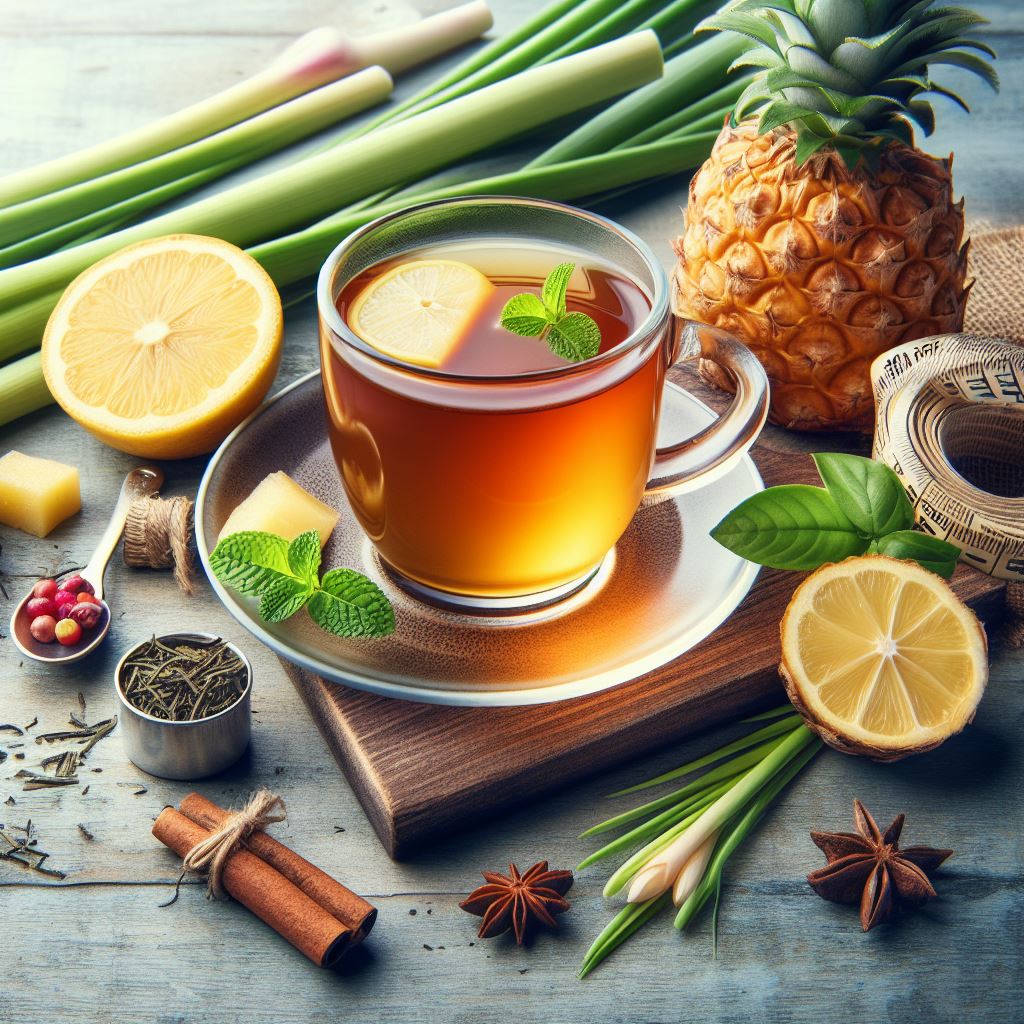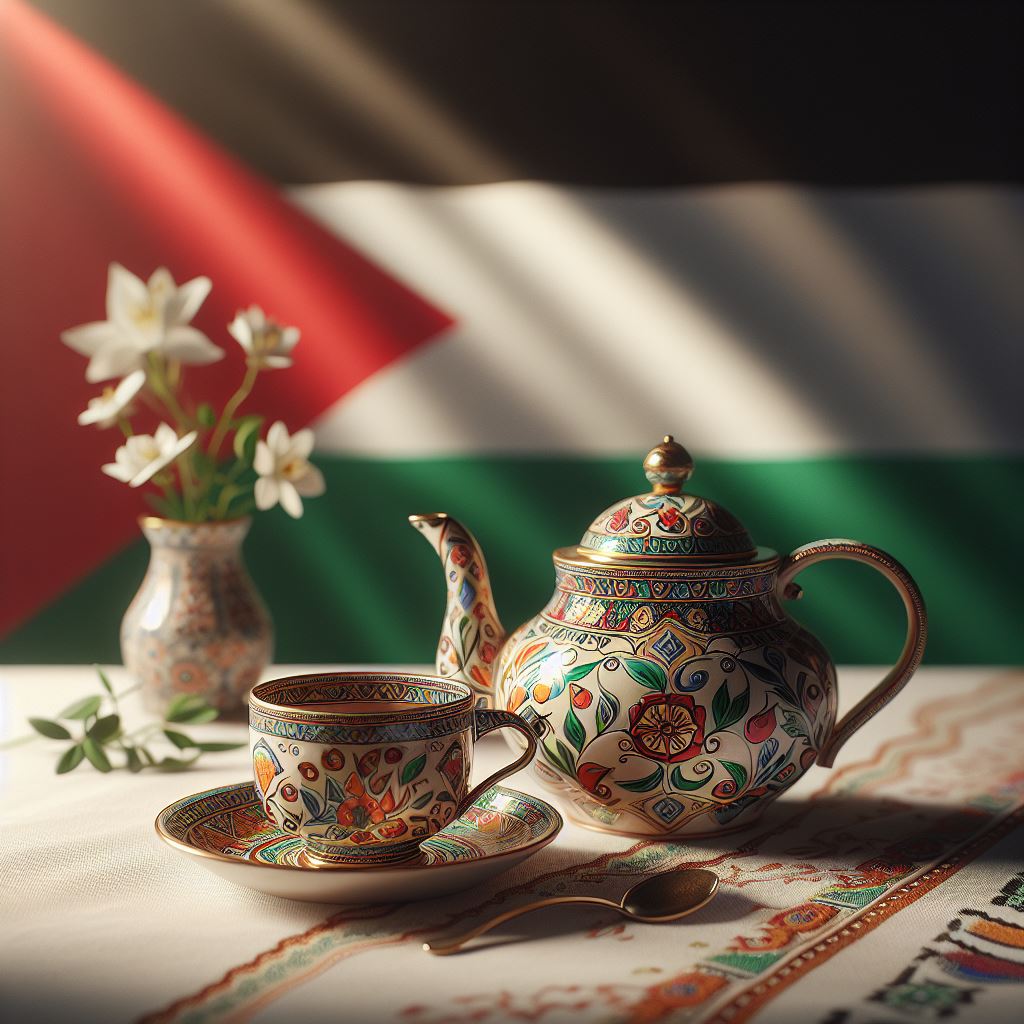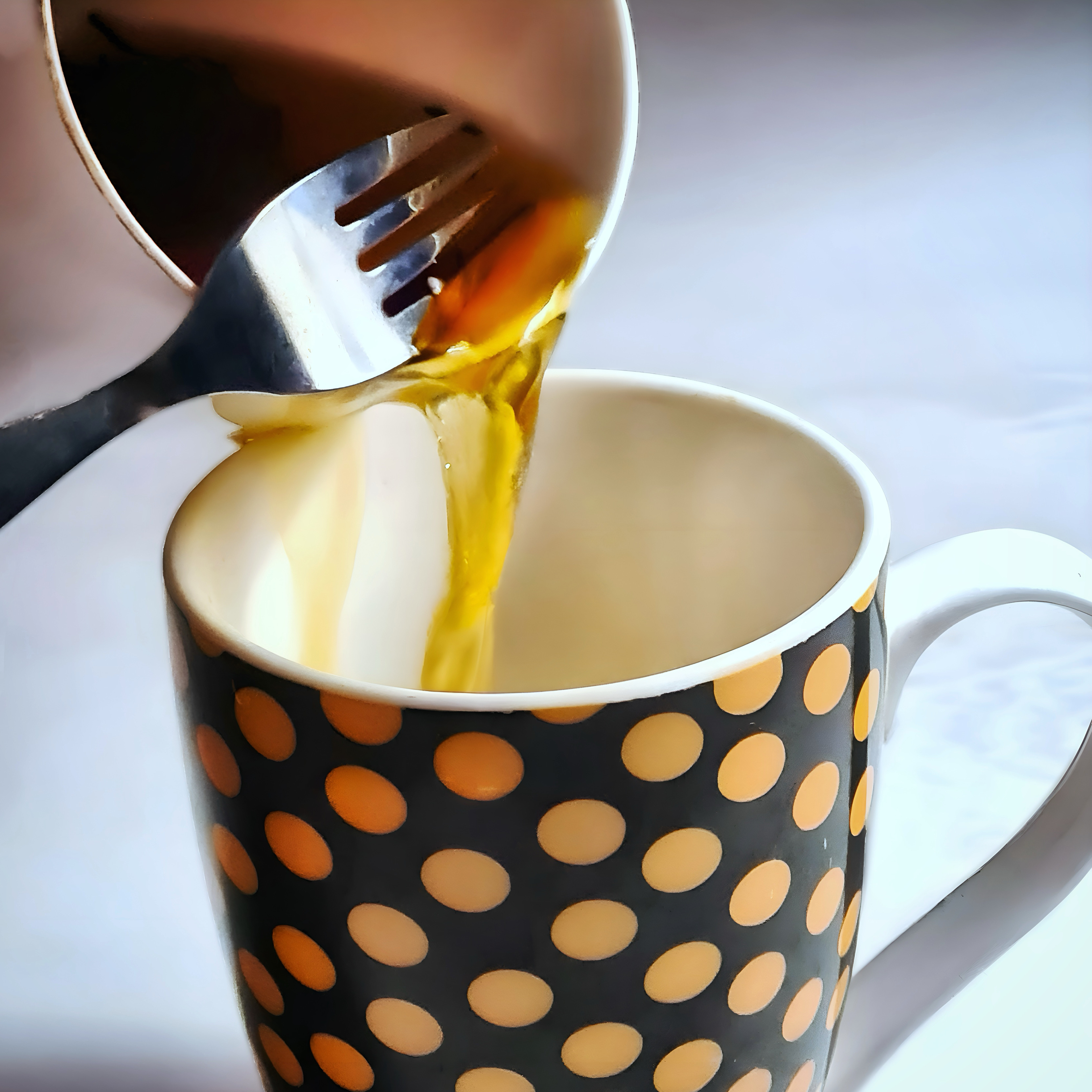Are you feeling stressed, anxious, or overwhelmed? Look no further than your tea cupboard! In this blog post, we’ll explore the fascinating world of tea and its incredible potential in soothing anxiety. Whether you prefer herbal, green, black, or adaptogenic teas, there is a brew for you that can help you relax and unwind. Read on to discover how tea can calm your nerves, boost your mood, and enhance your well-being.

Understanding Anxiety
Anxiety is a normal and natural response to stressful or threatening situations. It can manifest as physical symptoms (such as racing heart, sweating, trembling, or nausea), emotional symptoms (such as fear, nervousness, or worry), or behavioral symptoms (such as avoidance, restlessness, or irritability). Anxiety can affect anyone at any time, and it can interfere with daily functioning and quality of life.
Managing anxiety is crucial for maintaining overall well-being. While there are many effective treatments for anxiety, such as medication, therapy, or counseling, they may not be accessible or suitable for everyone. That’s why it’s important to adopt a holistic approach to anxiety relief, incorporating lifestyle changes, self-care practices, and natural remedies like tea.
The Science Behind Tea and Anxiety Relief
Tea is more than just a delicious beverage. It’s also a powerful source of natural compounds that can help reduce anxiety and stress. According to scientific research, tea has calming effects on the brain and the body due to its unique chemical composition.
L-theanine
One of the key compounds found in tea is L-theanine, an amino acid that promotes relaxation and mental clarity. L-theanine can cross the blood-brain barrier and influence the levels of neurotransmitters (such as serotonin, dopamine, and GABA). These can regulate mood, emotion, and cognition. L-theanine can also reduce the levels of cortisol, the stress hormone, and lower blood pressure and heart rate.
Polyphenols
Another group of compounds found in tea are polyphenols, which are antioxidants that protect the cells from oxidative damage and inflammation. Polyphenols can modulate the activity of the immune system and the nervous system. These are both involved in the stress response. Polyphenols can also enhance neurogenesis (the growth of new brain cells) and neuroplasticity (the ability of the brain to adapt and change), which are essential for learning and memory.
Mindfulness
Besides its chemical effects, tea also has psychological effects that can help with anxiety management. Tea can promote a sense of mindfulness and presence, which are key elements of meditation. Mindfulness is the practice of paying attention to the present moment without judgment or distraction. Presence is the state of being fully engaged and aware of one’s surroundings and sensations. By drinking tea mindfully and attentively, one can cultivate a calm and focused mind that can cope better with stress and anxiety.
Types of Tea for Anxiety Relief
There are many types of tea that can help with anxiety relief, each with its own benefits and characteristics. Here are some of the most popular ones:
1. Herbal Tea for Anxiety

Herbal teas are infusions made from various plants (such as flowers, leaves, roots, or seeds) that have medicinal properties. They are caffeine-free and usually have mild flavors and aromas. Some of the most common herbal teas for anxiety relief are:
- Chamomile: Chamomile is one of the most widely used herbal teas for relaxation. It has anti-inflammatory and antispasmodic properties that can soothe muscle tension and digestive issues. It also contains apigenin, a flavonoid that binds to benzodiazepine receptors in the brain and induces sleepiness.
- Lavender: Lavender is another popular herbal tea for calming the nerves. It has a distinctive floral scent that can reduce stress and anxiety. It also has antiseptic and anti-inflammatory properties that can heal wounds and infections.
- Lemon Balm: Lemon balm is a citrusy herbal tea that can uplift the mood and ease anxiety. It has a refreshing taste that can stimulate the senses and improve cognitive function. It also has antibacterial and antiviral properties that can boost immunity.
2. Green Tea for Anxiety

Green teas are made from the leaves of the Camellia sinensis plant that are minimally processed to preserve their natural color and flavor. They contain moderate amounts of caffeine (about 25-50 mg per cup) that can provide a gentle energy boost without causing jitters or crashes. They also have high levels of antioxidants (such as catechins) that can protect against oxidative stress and inflammation. Some of the best green teas for anxiety relief are:
- Green Tea: Green tea is the most common type of green tea that has a grassy and slightly bitter taste. It contains L-theanine (about 20-40 mg per cup) that can enhance the calming effects of caffeine and promote relaxation and alertness. It also has anti-cancer and anti-diabetic properties that can improve health and longevity.
- Matcha: Matcha is a powdered green tea that has a vibrant green color and a rich and creamy taste. It contains more L-theanine (about 60-80 mg per cup) than regular green tea, making it a potent source of relaxation and mental clarity. It also has more antioxidants (about 137 times more than regular green tea) that can boost metabolism and immunity.
3. Black Tea for Anxiety

Black teas are made from the leaves of the Camellia sinensis plant that are fully oxidized to produce a dark color and a strong flavor. They contain high amounts of caffeine (about 50-90 mg per cup) that can stimulate the central nervous system and improve mood and performance. They also have moderate levels of antioxidants (such as theaflavins) that can lower cholesterol and blood pressure. Some of the most enjoyable black teas for anxiety relief are:
- Black Tea: Black tea is the most widely consumed type of tea in the world. It has a robust and malty taste that can be enjoyed with or without milk and sugar. It can help reduce stress and anxiety by increasing the levels of dopamine, the pleasure hormone, and decreasing the levels of cortisol, the stress hormone.
- Earl Grey: Earl Grey is a flavored black tea that is infused with bergamot essential oil, which gives it a citrusy and floral aroma. It can help lift the mood and ease anxiety by activating the olfactory system, which is linked to the limbic system, the emotional center of the brain. It also has anti-inflammatory and antibacterial properties that can fight infections and inflammation.
4. Adaptogenic Tea for Anxiety

Adaptogenic teas are made from herbs that have the ability to help the body adapt to stress and restore balance. They are often used in traditional medicine systems, such as Ayurveda or Chinese medicine, to treat various ailments and enhance well-being. Some of the most effective adaptogenic teas for anxiety relief are:
- Ashwagandha: Ashwagandha is an Indian herb that has a bitter and earthy taste. It can help reduce anxiety and depression by regulating the levels of cortisol, serotonin, and GABA in the brain. It also has anti-inflammatory and immunomodulatory properties that can improve physical health and resilience.
- Holy Basil: Holy basil is an Indian herb that has a spicy and minty taste. It can help calm the mind and body by modulating the activity of the hypothalamic-pituitary-adrenal (HPA) axis, which is responsible for the stress response. It also has antioxidant and anti-microbial properties that can protect against oxidative damage and infections.
Brewing Techniques and Rituals
To get the most out of your tea for anxiety relief, you need to brew it properly and enjoy it mindfully. Here are some tips on how to brew the perfect cup of tea for anxiety relief:
1. Water Temperature:
The ideal water temperature for brewing tea depends on the type of tea you are using. Generally, herbal teas require boiling water (about 100°C or 212°F), green teas require hot water (about 80°C or 176°F), black teas require very hot water (about 90°C or 194°F), and adaptogenic teas require simmering water (about 70°C or 158°F). To achieve the right temperature, you can either use a thermometer or boil water and let it cool down for a few minutes before pouring it over your tea.
2. Steeping Time:
The ideal steeping time for brewing tea depends on the type of tea you are using as well as your personal preference. Generally, herbal teas require longer steeping times (about 5-10 minutes), green teas require shorter steeping times (about 2-3 minutes), black teas require medium steeping times (about 3-5 minutes), and adaptogenic teas require variable steeping times (depending on the herb). To achieve the right steeping time, you can either use a timer or watch your tea as it infuses until it reaches your desired strength and color.
3. Tea-to-Water Ratio:
The ideal tea-to-water ratio for brewing tea depends on the type of tea you are using as well as your personal preference. Generally, herbal teas require more tea leaves (about 2 teaspoons per cup), green teas require less tea leaves (about 1 teaspoon per cup), black teas require moderate tea leaves (about 1.5 teaspoons per cup), and adaptogenic teas require variable tea leaves (depending on the herb). To achieve the right tea-to-water ratio, you can either use a measuring spoon or eyeball your tea as you add it to your cup or teapot.
Tea Rituals:

Besides brewing your tea properly, you also need to create a calming tea-drinking ritual that can enhance your mindfulness and presence. Here are some suggestions on how to create a calming tea-drinking ritual:
- Choose a comfortable and quiet place to enjoy your tea, such as your couch, your bed, or your balcony. Make sure you have enough time and space to relax and savor your tea without any distractions or interruptions.
- Prepare your tea with care and attention, using the best quality water, tea leaves, and equipment you have. Appreciate the aroma, color, and texture of your tea as you brew it and pour it into your cup or mug.
- Hold your cup or mug with both hands and feel the warmth and weight of your tea. Bring it close to your nose and inhale its fragrance deeply. Notice how it makes you feel and what thoughts or emotions it evokes.
- Take a small sip of your tea and let it linger on your tongue. Taste its flavor and sweetness. Swallow it slowly and feel it travel down your throat and into your stomach. Observe how it affects your body and mind.
- Repeat this process until you finish your tea, taking breaks between each sip to breathe deeply and calmly. Focus on the present moment and the sensations of your tea. Let go of any worries or concerns that may arise in your mind. Enjoy the peace and tranquility that tea brings to you.
Tea Blends and Combinations
If you want to spice up your tea for anxiety relief, you can try some creative tea blends or combinations that can enhance the flavor and benefits of your tea. Here are some examples of tea blends or combinations for anxiety relief that you can make at home or buy online:
• Chamomile-Lavender Blend:
This is a soothing herbal blend that can help you relax and sleep better. Chamomile and lavender complement each other perfectly, creating a floral and sweet taste that can calm your nerves and ease your mind. To make this blend, you need 1 teaspoon of dried chamomile flowers and 1 teaspoon of dried lavender buds per cup of water. Steep them in boiling water for 5 minutes and enjoy before bedtime.
• Green Tea with Lemon and Ginger:
This is a refreshing green tea blend that can help you boost your energy and immunity. Green tea, lemon, and ginger have anti-inflammatory and antioxidant properties that can fight off infections and inflammation. They also have a zesty and spicy flavor that can stimulate your senses and improve your mood. To make this blend, you need 1 teaspoon of green tea leaves, 1 slice of lemon, and 1 slice of ginger per cup of water. Steep them in hot water for 3 minutes and enjoy anytime during the day.
• Black Tea with Milk and Honey:
This is a comforting black tea blend that can help you reduce stress and anxiety. Black tea, milk, and honey have soothing and warming effects that can lower cortisol levels and increase serotonin levels. They also have a creamy and sweet flavor that can satisfy your cravings and make you feel cozy. To make this blend, you need 1.5 teaspoons of black tea leaves, 1/4 cup of milk, and 1 tablespoon of honey per cup of water. Steep the tea leaves in very hot water for 5 minutes, then add the milk and honey and enjoy whenever you need a hug in a mug.
• Ashwagandha-Holy Basil Blend:
This is a powerful adaptogenic blend that can help you cope with stress and restore balance. Ashwagandha and holy basil are both revered herbs in Ayurveda that can modulate the stress response and promote a sense of calm. They also have a bitter and earthy flavor that can ground you and make you feel centered. To make this blend, you need 1 teaspoon of ashwagandha powder and 1 teaspoon of holy basil leaves per cup of water. Simmer them in water for 10 minutes and enjoy as part of your daily routine.
Additional Anxiety-Reducing Practices

While tea can be a great natural remedy for anxiety relief, it can be even more effective when combined with other practices and lifestyle changes that can enhance your well-being. Here are some additional anxiety-reducing practices that you can try along with your tea:
• Exercise:
Exercise is one of the best ways to reduce anxiety and improve mood. It can release endorphins, the feel-good hormones, and lower cortisol, the stress hormone. It can also improve blood circulation, oxygen delivery, and brain function. Aim for at least 30 minutes of moderate exercise per day, such as walking, jogging, cycling, or swimming.
• Yoga
Yoga is a mind-body practice that can help you relax and cope with stress. It can combine physical poses, breathing techniques, and meditation to create a harmonious balance between your body and mind. It can also increase flexibility, strength, and posture. Try to practice yoga at least once a week, either at home or in a class.
• Journaling:
Journaling is a writing practice that can help you express your thoughts and feelings in a safe and constructive way. It can help you gain insight into your anxiety triggers, patterns, and coping strategies. It can also help you release negative emotions, process traumatic events, and set positive goals. Try to journal for at least 15 minutes per day, either in the morning or at night.
• Aromatherapy:
Aromatherapy is the use of essential oils to enhance physical and mental health. It can stimulate the olfactory system, which is connected to the emotional center of the brain. It can also affect the nervous system, the immune system, and the hormonal system. Some of the best essential oils for anxiety relief are lavender, rose, bergamot, ylang ylang, and frankincense. You can use them in various ways, such as diffusing them in the air, applying them to your skin, or adding them to your bath.
Conclusion
Tea is more than just a delicious beverage. It’s also a powerful natural remedy for anxiety relief that can calm your nerves, boost your mood, and enhance your well-being. Whether you prefer herbal teas like chamomile or lavender; green teas like green tea or matcha; black teas like black tea or Earl Grey; or adaptogenic teas like ashwagandha or holy basil; there is a brew for you that can help you relax
Discover More Tea-Related Articles:
- Lavender Chamomile Tea: How to Make Your Own at Home
- Tea Processing: The Ultimate Journey from Plant to Cup
- Osmanthus Tea: How to Brew, Enjoy, and Use This Floral Delight
- Honey Ginger Tea: A Simple, Delicious and Healthy Kick
- How to Make Dandelion Tea: A Step-by-Step Guide





Leave a Comment